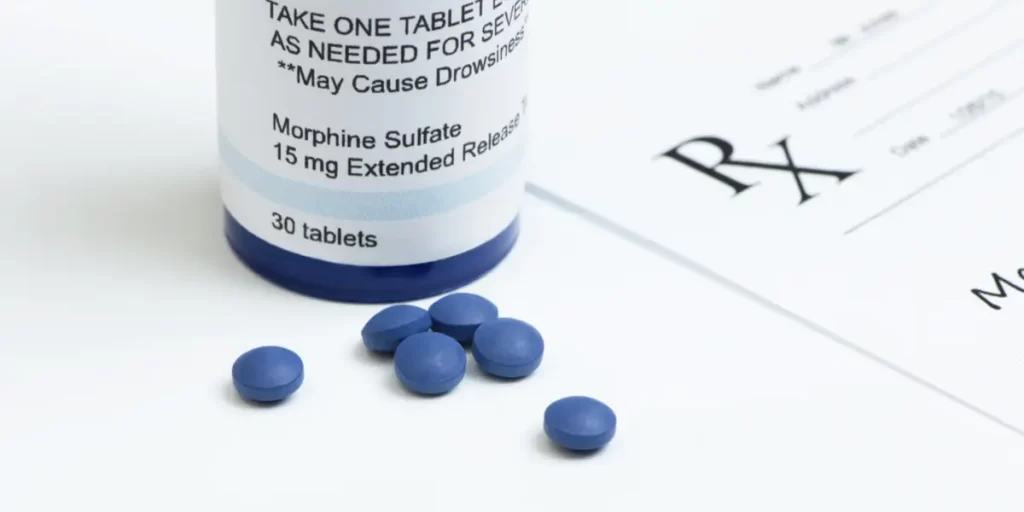Morphine Addiction Treatment & Rehab in Washington
Written by Thomas Christiansen
& Medically Reviewed by Benjamin Caleb Williams, RN
Medically Reviewed
Up to Date
Last Updated - 6/17/2022
View our editorial policy
Morphine is a potentially addictive, opioid pain medication. Morphine works by stimulating opioid receptors in the brain, which blocks the transmission of pain signals and releases chemicals in the brain called endorphins. The endorphins cause a sensation of euphoria and the high that is experienced with morphine can cause it to become addicting.
Someone addicted to morphine may require morphine addiction treatment at an outpatient clinic or in a rehab facility.
Morphine Treatment
Treatment for an addiction to morphine involves multiple components. The first goal is to stop the use of morphine. Depending upon the amount and the frequency of morphine use, morphine treatment may involve immediately stopping morphine use or it may involve gradually reducing the dose. While stopping morphine use, withdrawal symptoms will likely be experienced. A significant part of this stage of treatment involves monitoring for symptoms of withdrawal and helping to provide relief for symptoms that do occur.
Following the removal of morphine from the body, treatment then shifts to therapy and other interventions to help change the perspective and behaviors that led to morphine misuse. One common therapy used is cognitive-behavioral therapy (CBT) which helps people to understand the underlying motives behind their behaviors. This stage of treatment promotes new coping mechanisms and may focus on alternative ways to treat pain so morphine use isn’t necessary.
After the more intensive parts of treatment are completed, follow-up treatment helps patients maintain the new behaviors learned during the initial treatment and to help reduce the chance of experiencing a setback.
Error: Contact form not found.
Inpatient and Outpatient Morphine Addiction Treatment
Treatment for morphine addiction may be done either with inpatient treatment or outpatient treatment. Inpatient treatment involves checking in to a rehab facility and staying there during the initial parts of therapy. Inpatient treatment allows for careful monitoring of withdrawal symptoms and helps provide an environment where addiction treatment can succeed. Inpatient treatment is best for people who are likely to experience withdrawal symptoms or those who have tried to stop using morphine previously.
Outpatient treatment does not involve checking into a facility and allows the person struggling with a morphine addiction to receive treatment without significantly disrupting their normal schedule and lifestyle. Outpatient treatment is best for those who are unlikely to experience significant withdrawal symptoms and who have not tried to stop using morphine before.
Morphine Addiction Treatment Centers in Washington
When considering a morphine addiction treatment center, there are several important factors to take into consideration. The factors include:
- Reputation – There are many different rehab facilities with a variety of backgrounds and staff. Some treatment centers are known for providing excellent care, while others do not have as good of a reputation. When looking for a treatment facility, it is important to research the background of each rehab center considered, as well as what types of ratings they get.
- Treatment – Some treatment centers offer a single method of treatment that they believe works best for all their patients. Others offer multiple treatment methods or add different parts from various treatments to individualize the treatment plan to the person seeking treatment. It will be important to choose a treatment plan that best suits the individual seeking treatment.
- Location – One of the benefits of using a rehab facility is that it removes people from their normal routines and helps them focus on recovery. Often, people may benefit from using a rehab center that is outside of their hometown and may even benefit from attending a center outside of their state.
- Cost – Cost can be a significant factor when choosing a rehab facility. It will be important to find a rehab center that is compatible with the patient’s health insurance plan or one that can offer payment arrangements that are financially feasible.
Considering these factors is crucial to the success of addiction treatment. People who feel comfortable going to treatment are more likely to benefit from what treatment offers.
How Much Does Morphine Rehab Cost?
The cost of morphine rehab can be difficult to estimate because treatment varies for every patient. Many options can help offset treatment costs. Some insurance plans cover significant portions of the cost of treatment. For those without insurance, Medicare or Medicaid may help to cover a large portion of the expense. Some rehab facilities may also be able to offer flexible payment plans that help to make the payments affordable.
Does Insurance Cover Rehab for Morphine Addiction?
Many insurance plans will cover part or all of the cost of addiction treatment. Insurance coverage depends upon the particular plan and may vary for individuals.
If you have questions about specific insurance coverage and whether yours covers morphine addiction treatment, call The Recovery Village Ridgefield today to speak with a representative about treatment coverage. The Recovery Village Ridgefield provides patients with personalized addiction treatment programs that work by addressing addiction and any co-occurring mental health disorders. Take the first step toward a healthier future, call today.
We are here when you are ready.
Speak with a Recovery Advocate today to talk about your treatment options.
Authorship






